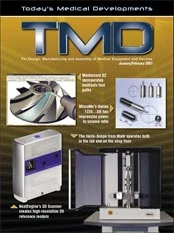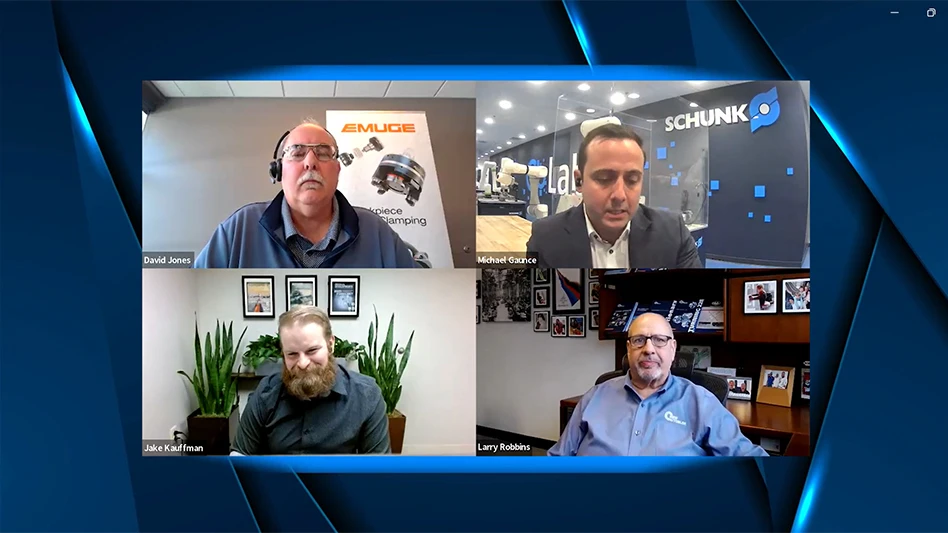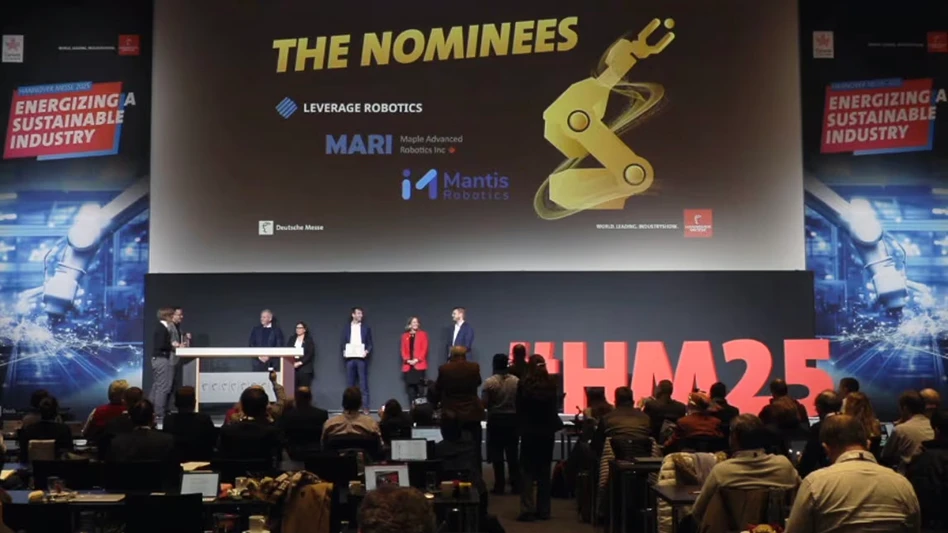
The medical device industry is relying on outsourcing more every year. Relationships with suppliers are more important than ever as outsourcing of manufacturing, design, development, testing and regulatory-issue management becomes more of a commonplace. What do successful relationships have in common? Is there anything about the way the relationship is structured or managed that is a predictor of success or failure?
Other industries have been involved in outsourcing longer than the medical device industry. What can we learn from them? The techniques developed decades ago by Ray Kroc, the founder of McDonald's - yes, the hamburger giant - offer invaluable lessons for our industry.
Many years ago, we supplied electronic communication equipment to McDonald's. This was just after Ray Kroc's death, but his imprint on the company was still evident. My dealings with McDonald's were among the most interesting business experiences of my career. Experiences similar to mine were captured in John F. Love's 1986 book, "McDonald's: Behind the Golden Arches." All of the forthcoming quotations are taken from that book.
Medical device manufacturers can learn these lessons from McDonald's to forge successful partnerships with suppliers:
- Smaller, more entrepreneurial suppliers have some advantages over their larger competitors. Smart companies use both small and large suppliers.
- Vendor loyalty is a key component of success.
- It's a good thing for your vendors to be successful. You succeed when they do.
IS SUPPLIER SIZE RELATED TO THE SUCCESS OF A RELATIONSHIP?
Everyone has heard the old adage "Nobody ever got fired by buying IBM." Partnering with giants was seen the least risky choice a purchaser could make. Maybe the large company didn't offer the best technology, best product or best service, but nobody ever got fired for buying the brand name. However, not getting fired is reducing the risk to the purchaser, but doesn't necessarily maximize the benefit to the company.
"McDonald's built the world's largest restaurant operation by relying on lesser- knowns and unknowns of the food processing business." - Love, Page 324.
Ray Kroc didn't take the "IBM" approach when it came to choosing his suppliers. He recognized that McDonald's business model would be unlike all others up to that time. He realized that he would need creative solutions to issues in distribution, technology, food-product and business relationships; and he reached out to his suppliers for help in innovation. With today's technology explosion, medical device manufacturers need equally- creative solutions. It's impossible for even the biggest company to develop all the creative solutions in-house.
"When McDonald's demanded special attention, it was the small suppliers who were willing to take the extra steps." - Love, Page 325.
Why is that? Are the employees of smaller suppliers smarter or more innovative? Do large companies stifle creativity? Maybe some elements of these notions hold a little truth, but more likely, it's simply that the smaller suppliers had more incentive to be creative and to give better service to their customers.
"‘The smaller suppliers had more to lose, and more to gain from our account. They appreciated the business more and responded faster. I never met an officer from Kraft until they had lost 50% of our cheese business.'" - Love, Page 325, quoting Lynal Root of McDonald's.
VENDOR LOYALTY-- THE FORGOTTEN ASSET
In today's business environment of outsourcing, offshoring and Internet price comparisons, choosing vendors based on price alone has become the norm. The Wal-Mart strategy of squeezing every penny of cost out of the goods it sells has been adopted by many other business segments beyond commodity customer goods. Unfortunately, the unintended consequence of this is that it has destroyed any notion of supplier loyalty to a customer or client. Loyalty has to extend both ways.
A supplier that's loyal to a disloyal customer won't be loyal for long. The inverse is also true.
Device manufacturers may ask why supplier loyalty is valuable to them. The value certainly is not as quantifiable and tangible as saving a dollar on every pound of pickles, or as impressive as saving $10,000 on a product development contract. However, Ray Kroc understood this completely.
"How did McDonald's do it? In a word: loyalty. While it started with small suppliers, it allowed its suppliers to grow with the system by being intensely loyal to those who were willing to reinvest in new capacity and new technology designed to improve their quality and efficiency. McDonald's carefully avoided the common food service practice of shopping around from week to week to find the supplier with the lowest price." - Love, Page 328.
McDonald's allowed small suppliers to grow with the business that they helped Kroc create. In effect, Kroc viewed his supplier network as his partners in the growing McDonald's empire. McDonald's benefited because suppliers worked diligently to improve product quality and efficiency, often at their own risk. Because they knew McDonald's would reward their loyalty, suppliers invested in new products and processes to benefit McDonald's.
"Nowhere is the unusual supplier dedication of McDonald's more evident than in the development of new or improved products. Over the years, suppliers have become almost extensions of the McDonald's product development department, willingly investing millions of dollars to develop new products or more efficient processes. The carrot has always been the knowledge that if the new product or process worked, McDonald's would give its developer all the new business it could handle." - Love, Page 329.
The "carrot" is critical. Had McDonald's not been loyal to its suppliers, had it switched suppliers every time it could cut costs by a few cents, would the suppliers have invested in developing new products and processes for McDonald's, only to have the new business be awarded to a lower bidder who had not invested in the improvements?
In medical devices, as in hamburgers, winning a low-bid contract means cutting costs as low as possible to make the contract profitable. There is little room in a low- bid contract for investing in the customer's business.
"In short, it commanded intense loyalty from suppliers by giving it to them first. No supplier has lost McDonald's business simply because someone new came in with a better price. … Its ‘contracts' with suppliers are made only on handshakes, never in writing, even with those companies whose businesses are totally dependent on McDonald's." - Love, Page 328.
At first, in my own experience, I did not believe that McDonald's really worked only on handshakes. I was convinced it was a trick to give them a way out of paying us for our project. As it turned out, it was true. Transactions with McDonald's were routinely sealed with a handshake. With the second and succeeding projects, we became one of those intensely loyal suppliers. We brought new ideas to them; they rewarded us with the business—and we gladly did it on a handshake. We never feared that our ideas would be implemented in-house at McDonald's or with another supplier, leaving us out of the deal. We never worried in the least about not being paid. That was just not the culture at McDonald's. We've had many great client relationships since then, but our experience with McDonald's clearly stands out from the others.
"WE WANT YOU TO BE SUCCESSFUL"
This is very much related to the supplier loyalty concept. My introduction to becoming part of the McDonald's family was the day a McDonald's purchaser took me out for breakfast to go over the costs of the project one more time. Of course, I was braced for the worst, and expected one more round of negotiation for cost reduction.
To my surprise, the intent of the breakfast was two-fold. First, McDonald's wanted to be sure there was enough money in the deal for my company to make a decent profit. They wanted to be sure we would become one of those loyal suppliers who would come back for more business.
The second, and even more surprising objective of the meeting, was to get to know our products and services better so that they could recommend us to other companies - even their competitors. What? Why were they interested in spending their time to promote my company? It was simple: they really did want us to be successful. They liked our products and services. They realized that McDonald's would become dependent on our products and services, and therefore would be dependent on our company. They wanted to be sure that we were successful enough to be available long-term. Introducing us to other customers, even their competitors, helped to assure our success and longevity.
Understanding that the supplier and the customer would either succeed together or fail together was part of the McDonald's corporate culture. At the kickoff planning meeting for our project, the McDonald's program manager ended our two-day session with this question: "What else can we do to be sure this project will be successful?" My answer was that some additional pre-payment could be put to good use securing materials and resources. The McDonald's manager asked how much, and the next day a check arrived at our front door. At that instant, our loyalty was secured.
It all makes sense, yet it is so contrary to the way business is conducted today. Too often, in the "David and Goliath" business match-ups, the larger company in the transaction seems to have an attitude that the smaller company is lucky to be doing business with it. There is often resentment by the large company that the smaller company would be financially successful because of their business relationship. There often seems to be an unspoken attitude that the smaller company should be ready to take losses to ensure the success of the larger company. These attitudes do not instill the kinds of supplier loyalty that can become so valuable in the long term.
SUMMARY
I've never encountered another company like McDonald's; one that took chances with small suppliers, was loyal to them, and created—not demanded—loyalty back from them. Ray Kroc understood the art of the deal and the importance of partnering with suppliers. Whether we are talking about hamburgers or defibrillators, the concepts apply equally. The medical device manufacturers that will succeed in the next decade are the ones that will form lasting, mutually beneficial partnerships with the industry's best suppliers.
Dr. David A. Vogel is president of Intertech Engineering Associates, Inc. (www.inea. com) in Norwood, MA. Intertech is an outsourced engineering service provider to the medical device industry offering services related to product development and validation, validation of quality and production software and training and management consulting. He can be reached at 781-255-5420 or dav@inea.com.

Explore the January February 2007 Issue
Check out more from this issue and find your next story to read.
Latest from Today's Medical Developments
- The role of robotics in precision medical device manufacturing
- Swiss Steel Group’s UGIMA-X machinable stainless-steel sets
- #51 - Manufacturing Matters - The Impact of M&A in MedTech 2024
- Visual Components: 25 years of simulation and programming software innovation
- Zimmer Biomet announces definitive agreement to Acquire Paragon 28
- Discover an innovative technology for EMI/ESD/TVS suppression
- Teleflex to acquire BIOTRONIK’s Vascular Intervention business
- Innovation at Global Industrie 2025





